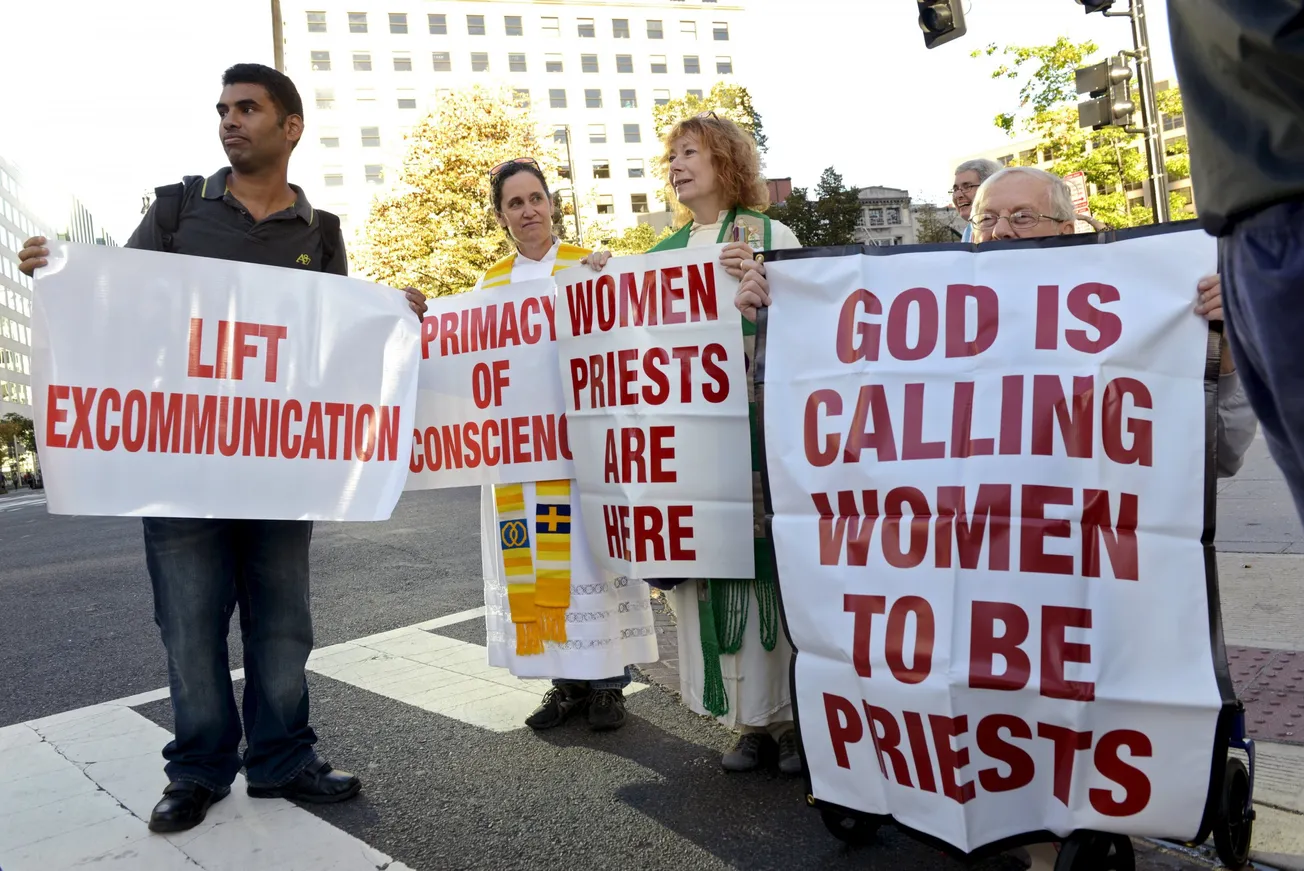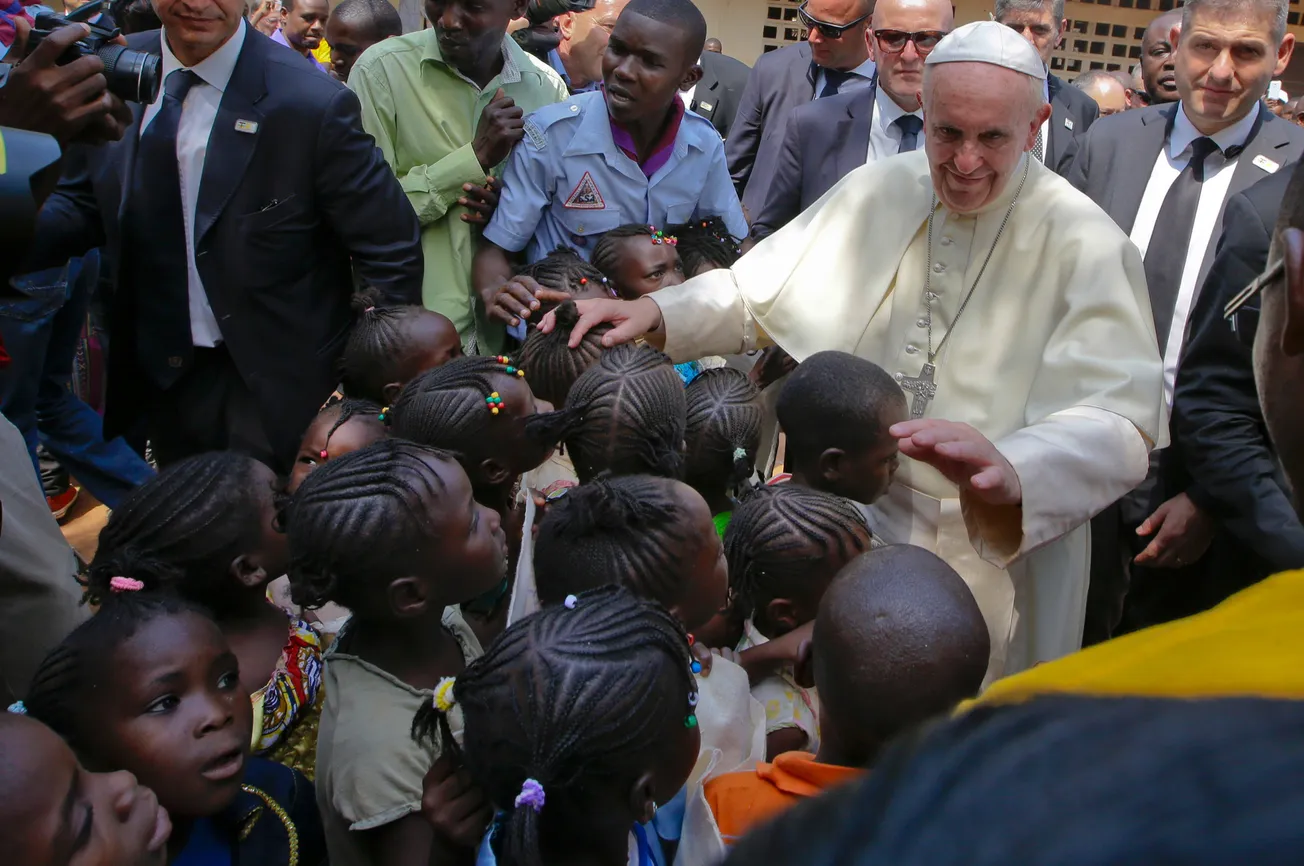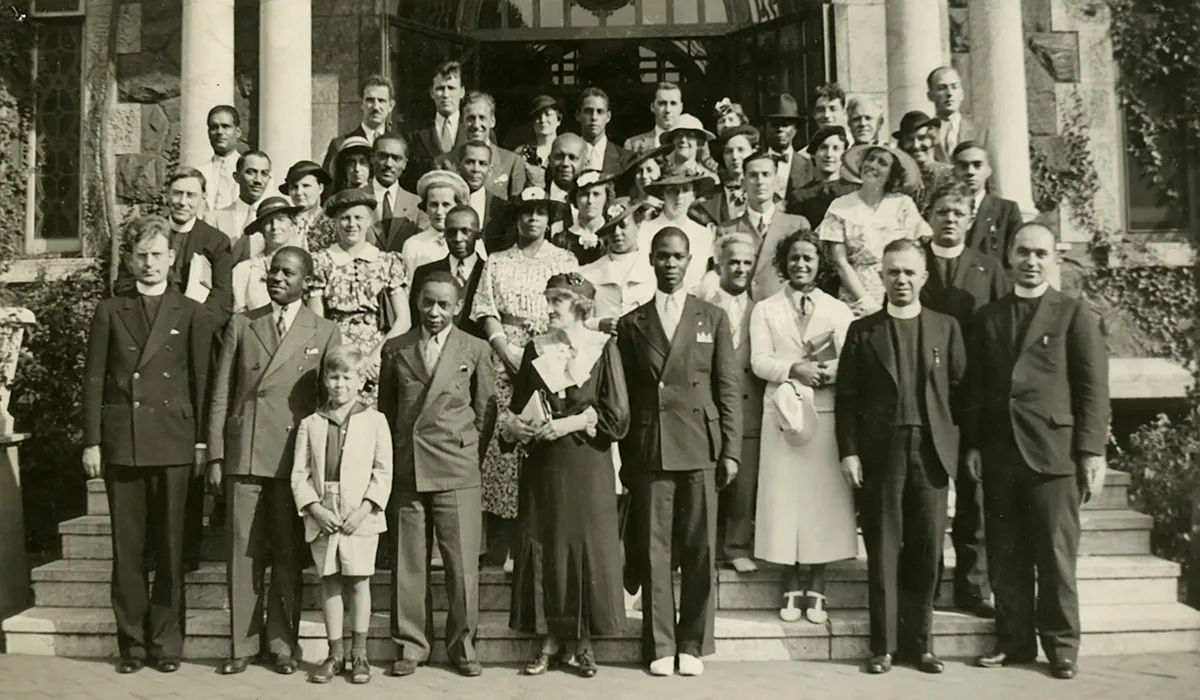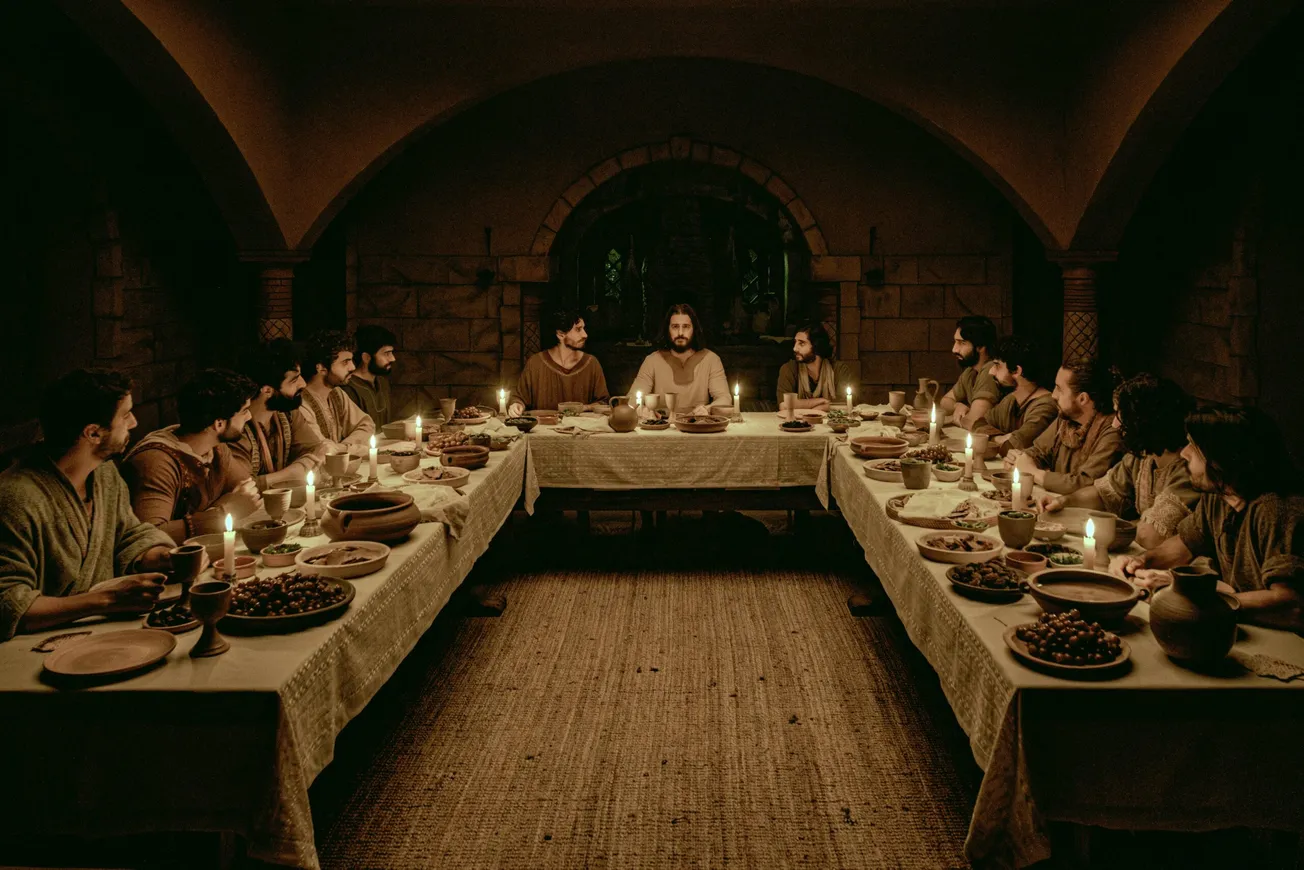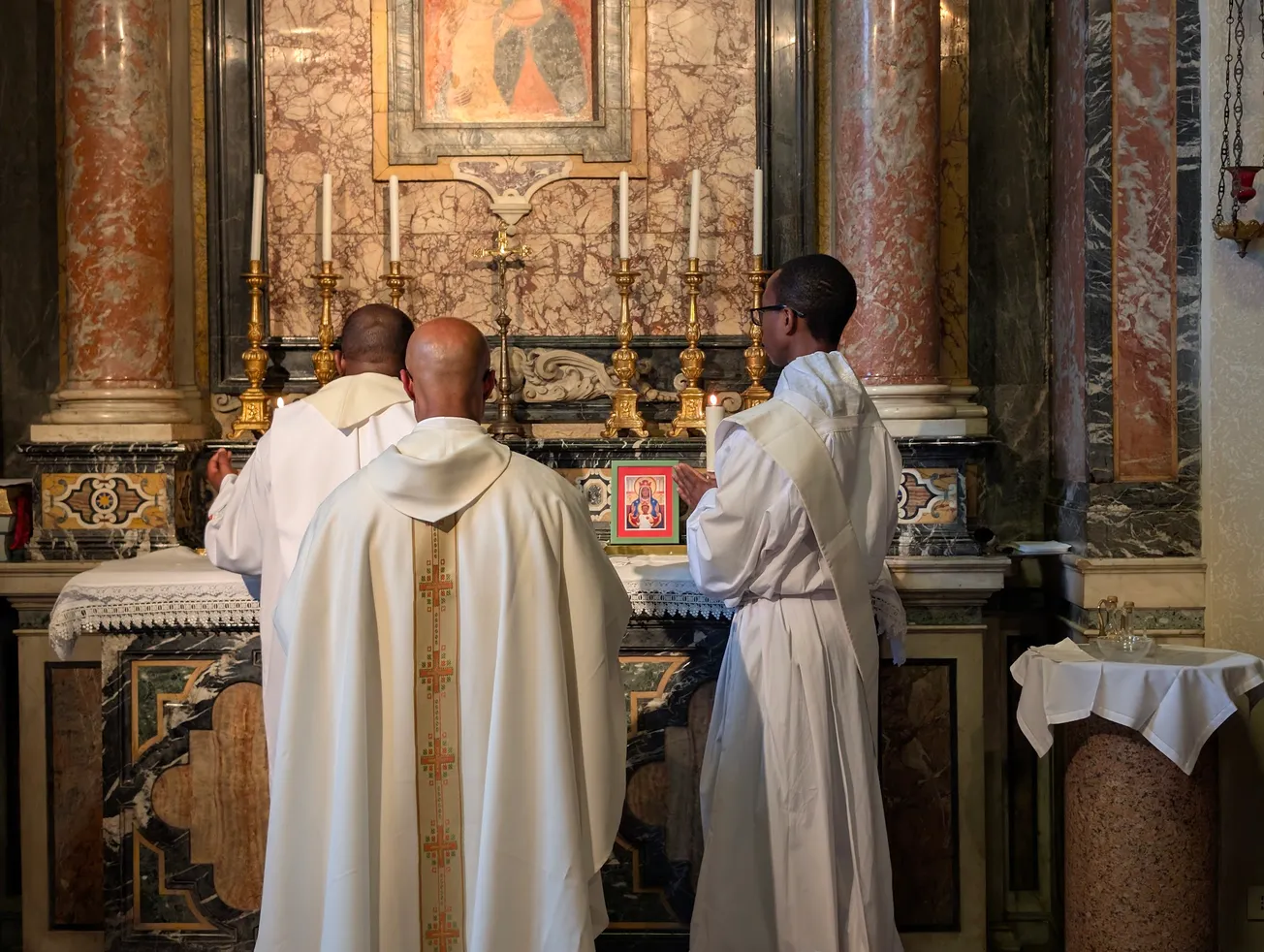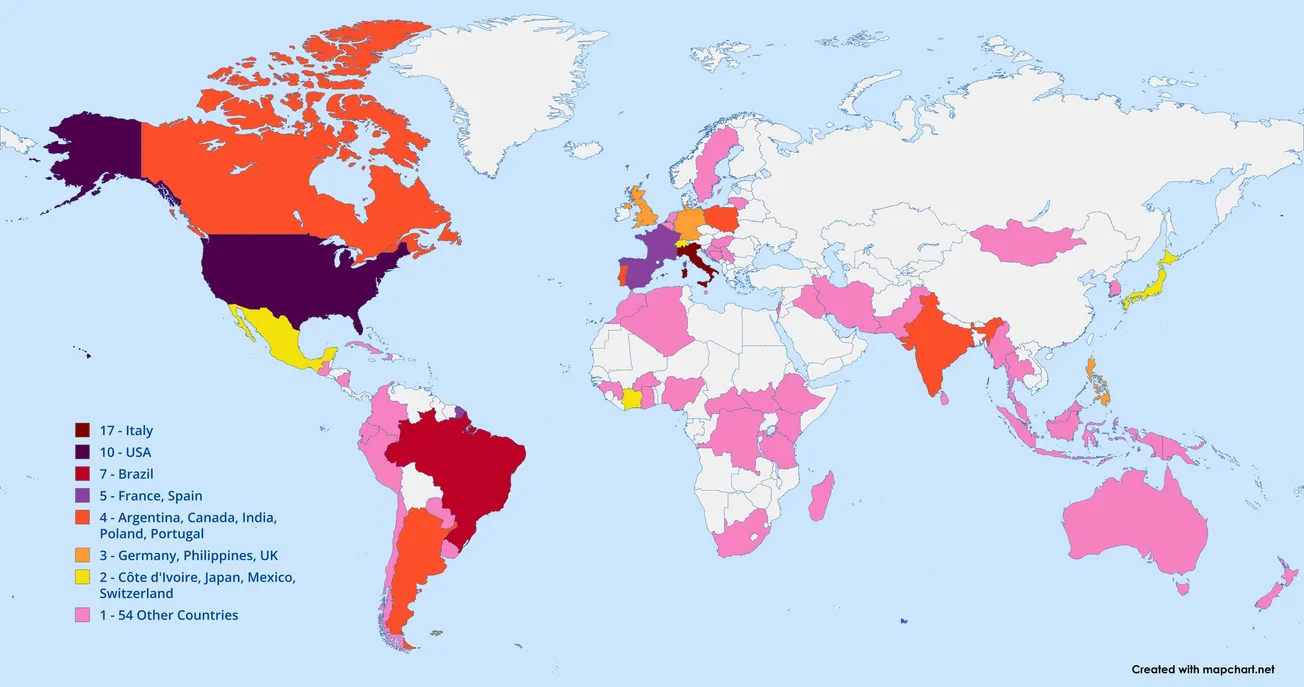You know, the one thing we did right was the day we started to fight. Keep your eyes on the prize. Hold on.
“Eyes on the Prize” (1987)
Let’s be clear: The fact that in 2023 there are no African American saints in the Catholic Church, while there are eight White American saints, is actually a civil rights issue.
Given that the Catholic Church historically and institutionally ignored government laws intending equal protection for all, some Black Catholics even today can remember the overt second-class membership they were subjected to by the White-majority U.S. Church for decades.
As the Supreme Court ruled against segregation in education in 1954, White Catholics in America were banning Blacks from being taught in seminaries and convents. As Rosa Parks sat down to protest unfair seating on buses in Montgomery, Alabama, in 1955, Blacks were required to sit in the back or side aisles away from Whites inside Catholic houses of worship. This continued for years after Parks and Dr. Martin Luther King Jr. had their victory. There were even separate holy water fonts in some churches, where people blessed themselves by dipping their hands in and making the sign of the cross when entering. They were just like the racially separate drinking fountains in the larger society.
When King and his followers practiced nonviolence and civil disobedience against segregation, they were affecting the command of Jesus Christ to “turn the other cheek.” Like Christ, Blacks, Browns, Whites, and Asians who endured beatings, dog bites, forceful fire hose streams, and rejections, were enduring unearned suffering. King, in his “Principles of Non-Violence,” reminded us that “unearned suffering is redemptive.” African Americans learned the correlation of the crucifixion of Jesus to Blacks being hung from trees, as described in Black theologian James Cone’s 2011 book, “The Cross and the Lynching Tree.”
My point is that Black Catholics have always had to fight for their God-given (and U.S. Constitution-guaranteed) right to be treated as equals, as first-class citizens, and as members of their Church. They were taught in school and in church that everyone on Earth is “a creature made in the image and likeness of God.” And yet, with their exclusionary practices, many White Catholics didn’t see themselves through the eyes of a God with love for all. Many Whites made God in the image of their White selves: superior, separate, subjugating, and hateful.
Black Catholics have lived with this contradiction of the Gospels since the early days of enslavement in what would become the United States. Today, we find that apartheid remains in the communion of Catholic saints. We find the deprivation of what is rightfully ours: representation of ourselves for due honors, as they are no less deserving than all their White counterparts.
There are no Catholic churches in this country named for an African American, because you must be a saint or blessed for that to happen. Until Black Catholics started hanging pictures of the first six African American sainthood candidates inside their churches, White Catholics had subliminally seduced attendees into thinking they had succeeded in making God in their image: an exclusionary deity, a God who only wanted Whites to feel loved in God’s house. A hating God, not a loving one. The God of a segregated Heaven. How in the hell did that happen?
There is a process for decided exceptionally good persons to be honored with the designation of sainthood in the Catholic Church. Many in guilds and in a Baltimore Black Catholic parish initiative are advancing the causes of the six African Americans: Mother Mary Lange, Father Augustus Tolton, Mother Henriette DeLille, Ms. Julia Greeley, Mr. Pierre Toussaint, and Sister Thea Bowman. A seventh candidate, Father Martin de Porres Ward, is added to the list by some.
The process of being declared a saint is difficult, long, secretive, and expensive. The net effect is that no African American has ever made it—despite the Black Catholic community having endured enslavement, segregation, mass incarceration, and mass poverty, not to mention so many that lived lives of generosity, courage, inspiration, and faithfulness. It feels like that old saying: “No good deed goes unpunished.”
The $1,000,000 price tag, often quoted as firmly attached to the canonization process, is reminiscent of the poll tax, which served as a precondition for Black Americans being able to vote (dating back to the late 19th century in some states). Catholics—Black, Brown, White, or Asian—cannot name a church after any of the Black persons in line for sainthood until all the money is paid and the rest of the complicated process is complete. Not having enough money is one of the reasons there are no Black saints from the United States. As it is, the U.S. Supreme Court ruled poll taxes unconstitutional on March 26, 1966. Isn’t it time for the Vatican to remove its fee requirements from the process of becoming recognized saints?
It may be the case that for Catholic laypersons, clergy, sisters, and brothers who were White Supremacists and still considered themselves good Catholics, the poll tax did its excluding job well. And the prohibitive price for sainthood is inadvertently or intentionally maintaining an aspect of the church's segregated practices of the past (like a valued relic of those bygone days).
As part of the expensive process, the Vatican expects proven medical miracles to confirm sainthood. Ignored are various other aspects, like keeping the faith despite prejudice, discrimination, slavery, being treated as inferiors, and being excluded from Catholic institutions after contributing to church offerings. Disregarded are the construction of churches, schools, houses, hospitals, and entire movements of faith-filled service. The positio, the initial narrative submitted for the sainthood process, covers these kinds of deeds and makes the argument for persons to be considered suitable for sainthood. Ultimately, however, it is a subjective evaluation parallel to the literacy tests of old at the polls, which were abolished by the Voting Rights Act of 1965. The positio, too, should be eliminated, particularly as it pertains to African-American candidates for sainthood.
The bottom line is that the Catholic sainthood process excludes Black Americans. It is a process of rules to which exceptions have been and are applied—but not for us. Given these facts, the Social Justice Committee of St. Ann Catholic Church in Baltimore, Maryland, is planning to travel to the Vatican City to make the argument for fairness and equity to the pope and/or the Dicastery for the Causes of Saints.
We are waiting to get an audience or an appointment. We are waiting for our saints. In the meantime, we are “keeping our eyes on the [saintly] prize and holding on.” We welcome financial support for our trip.
Ralph E. Moore Jr. is a lifelong Black Catholic, educated by the Oblate Sisters of Providence and the Jesuits. He has served on various committees on race, racism, and poverty for the Archdiocese of Baltimore. He is a married man with two children and four grandchildren. He is currently a weekly columnist for the Afro-American and a member of the St. Ann Social Justice Committee. He can be reached at vpcs@yahoo.com.



